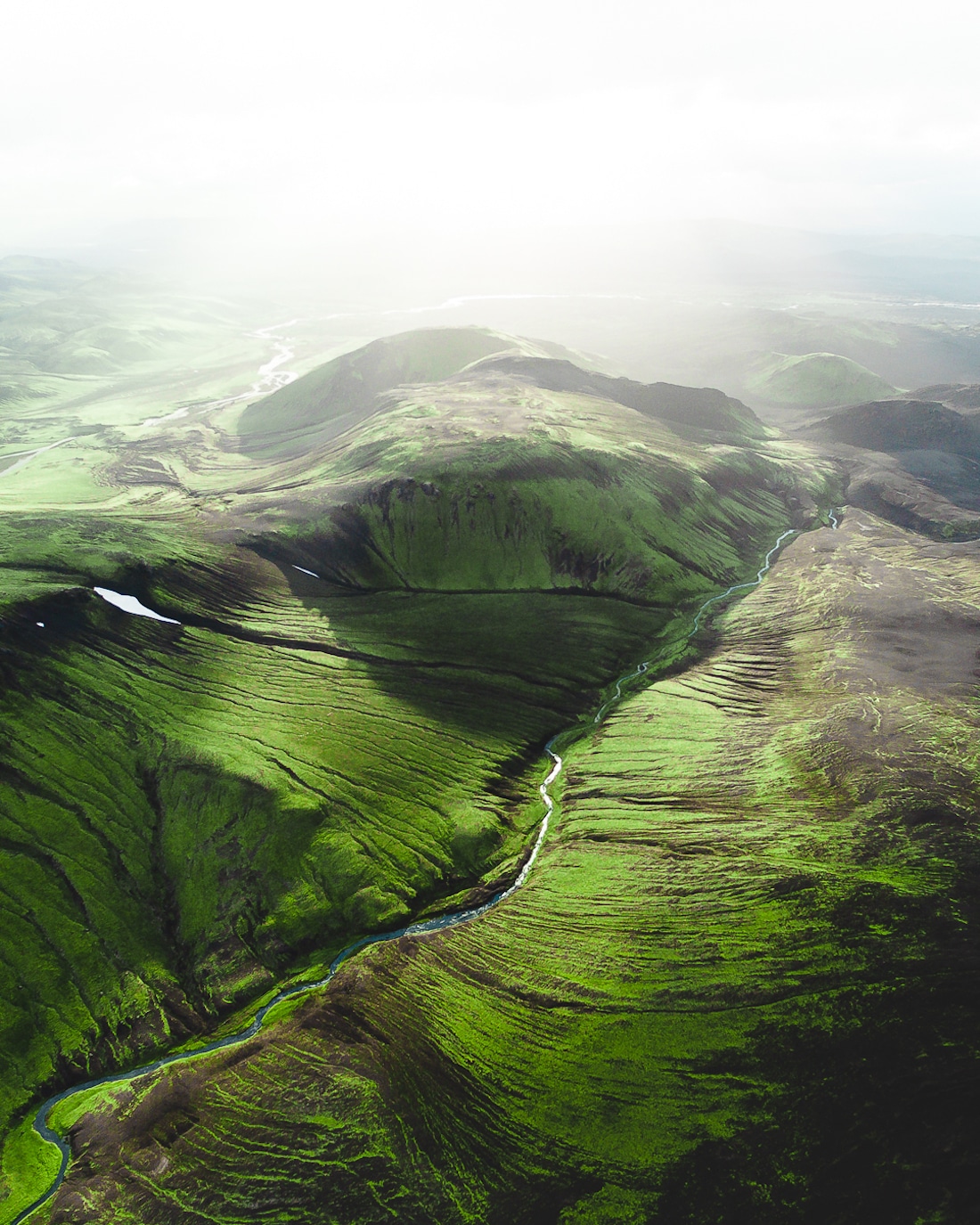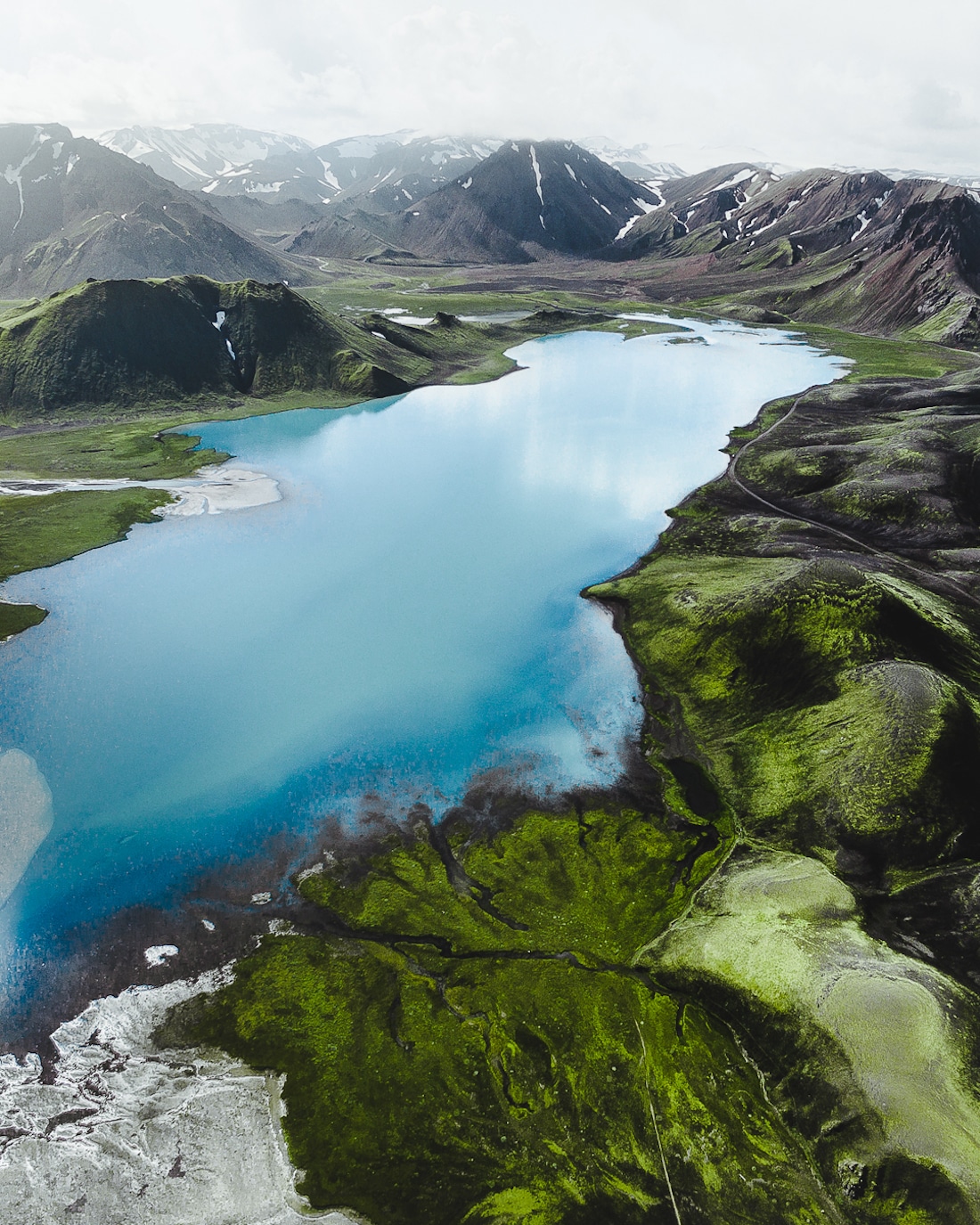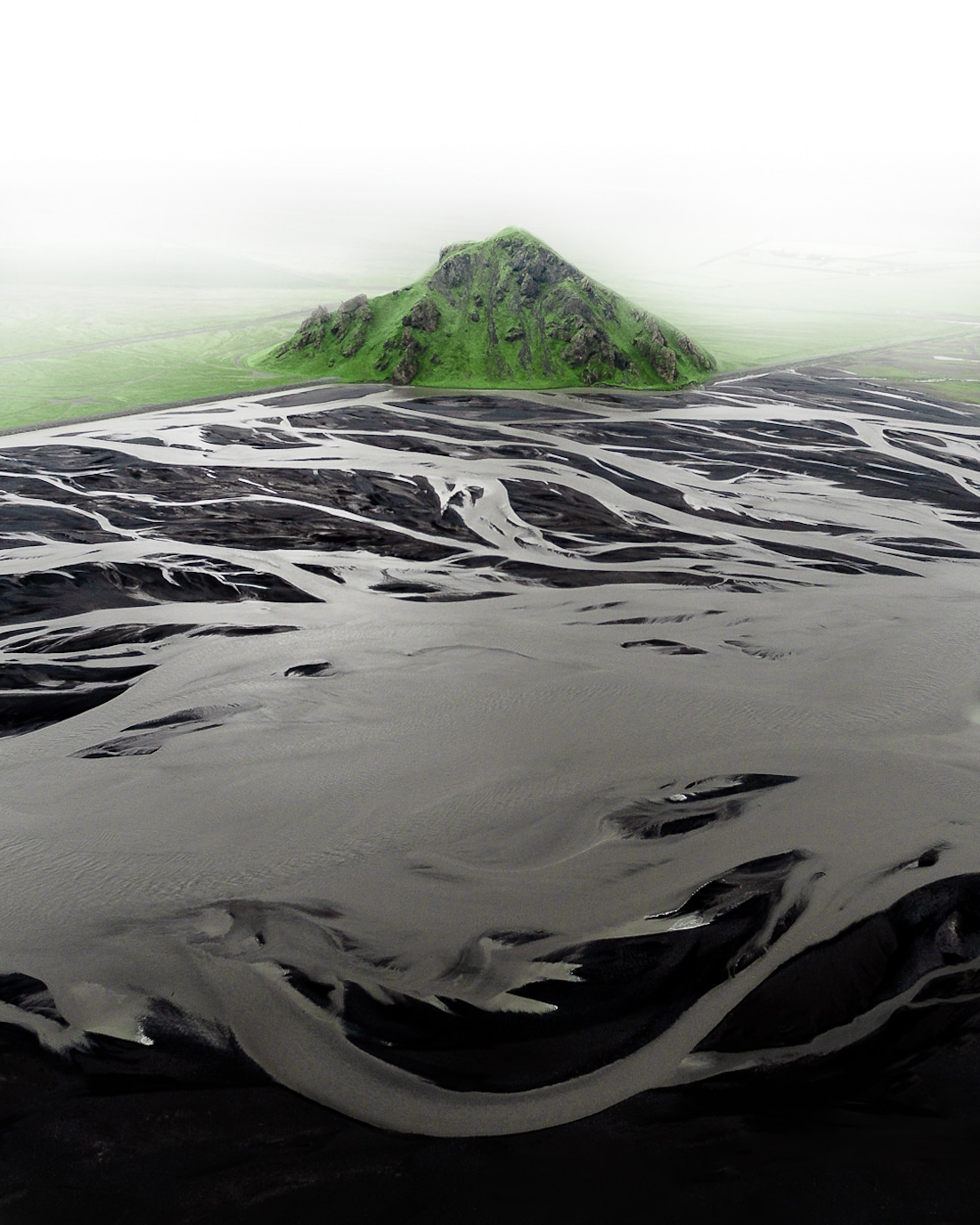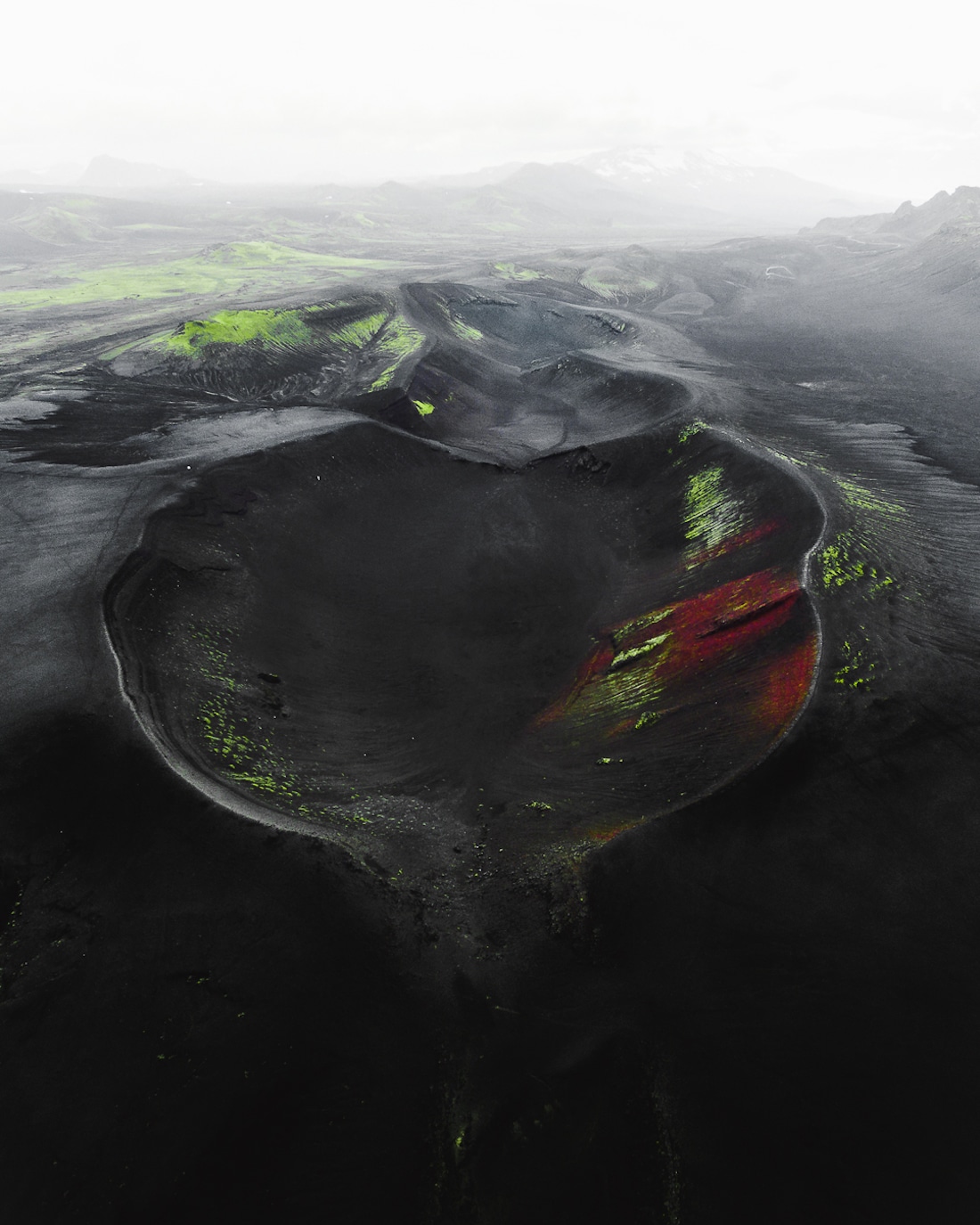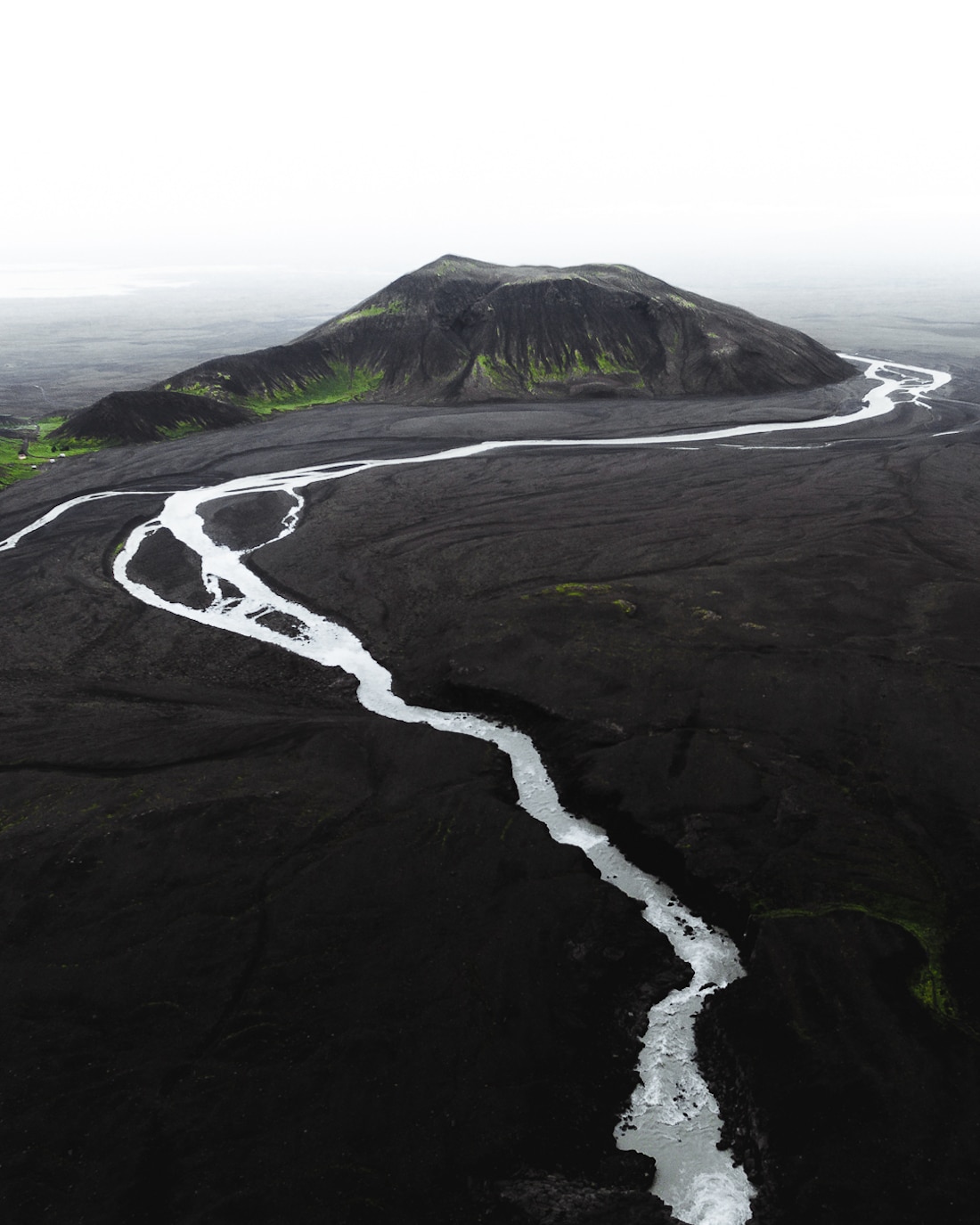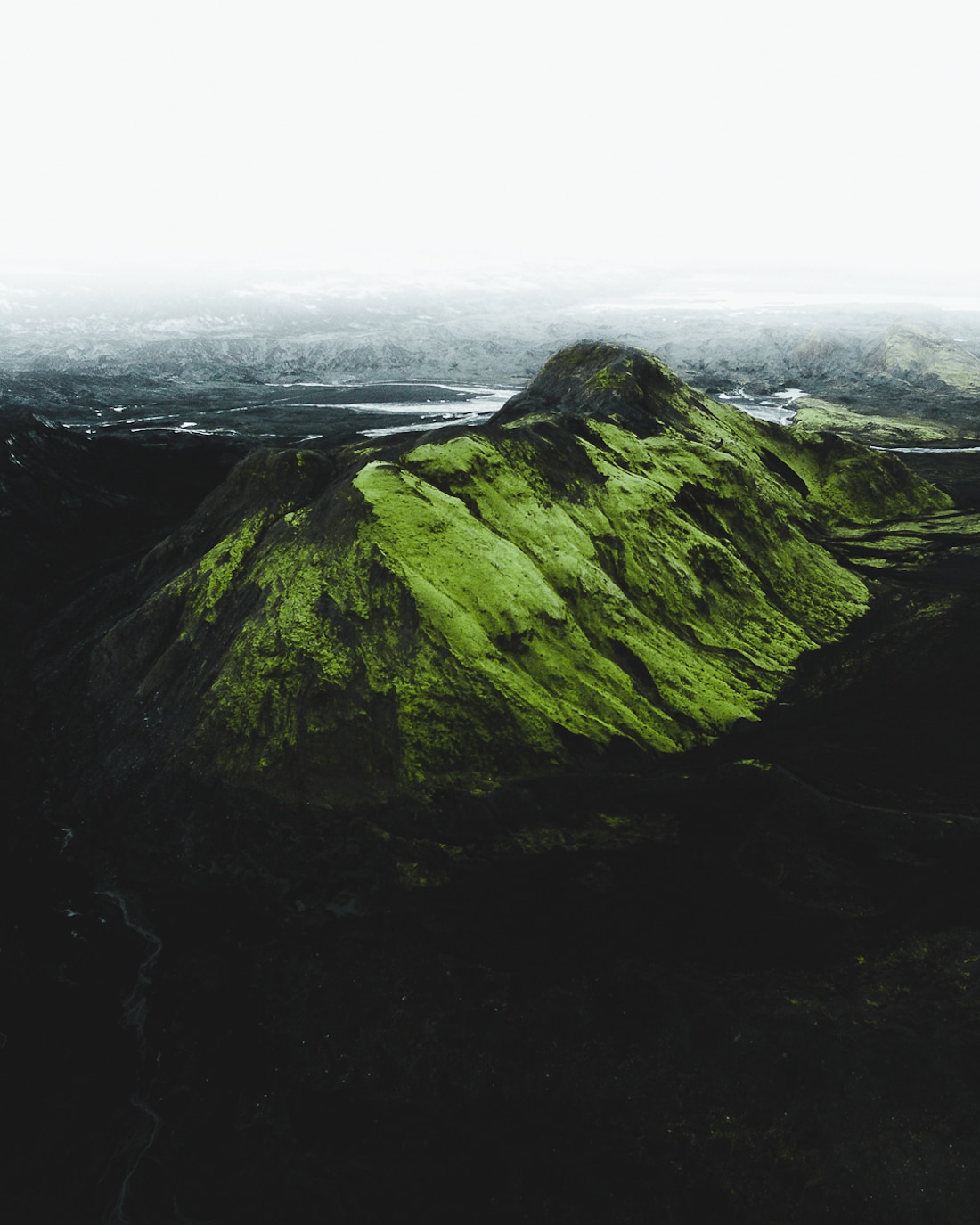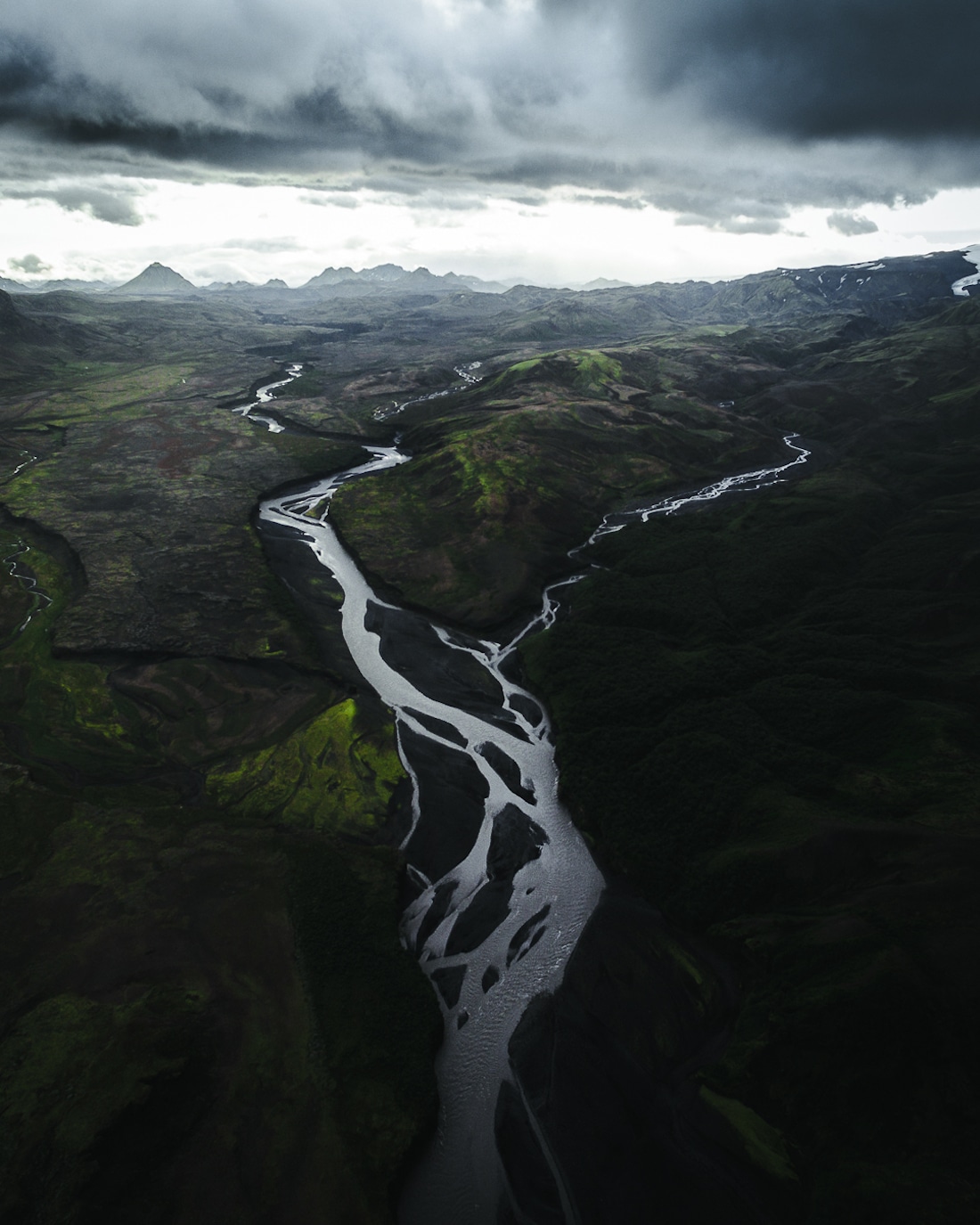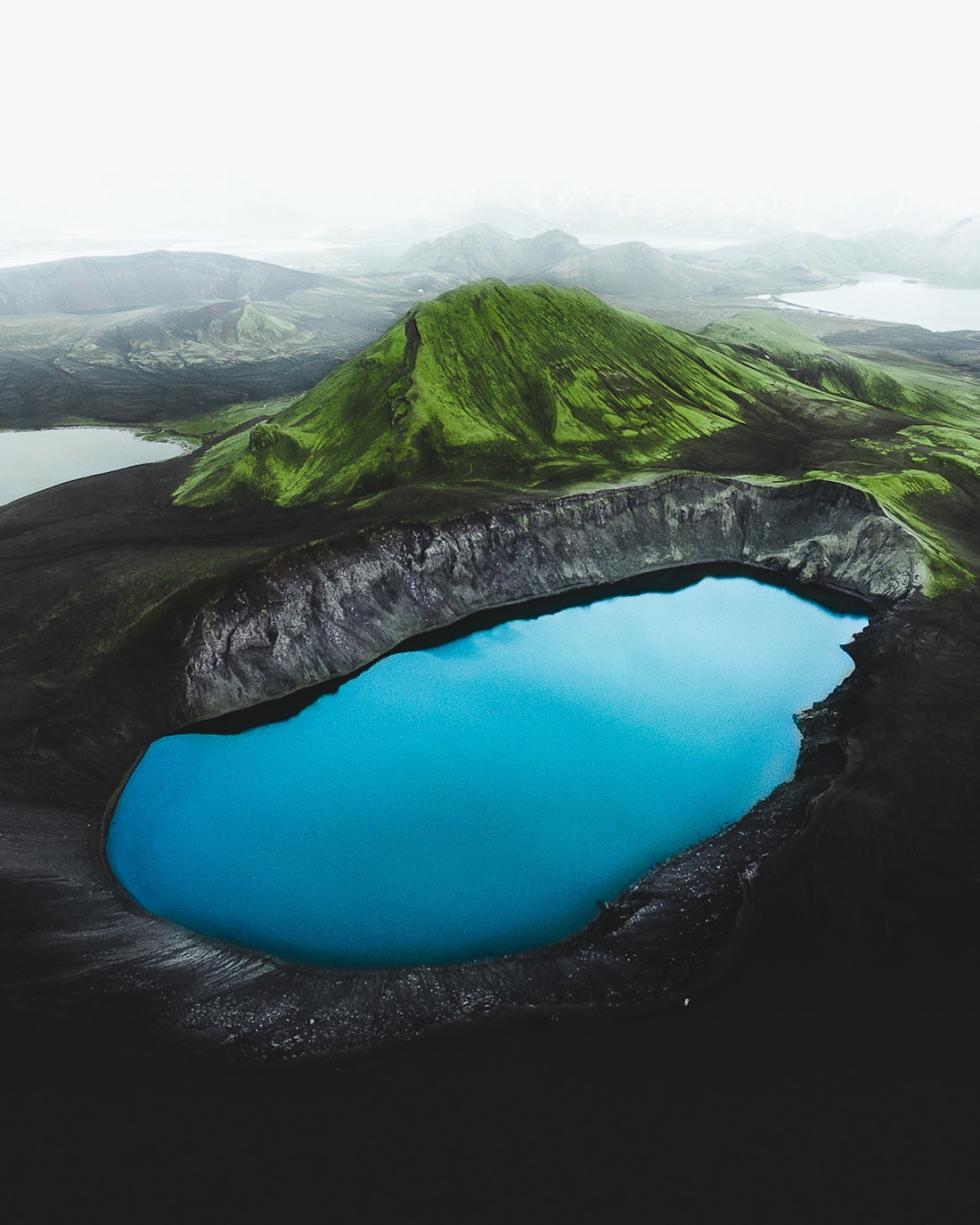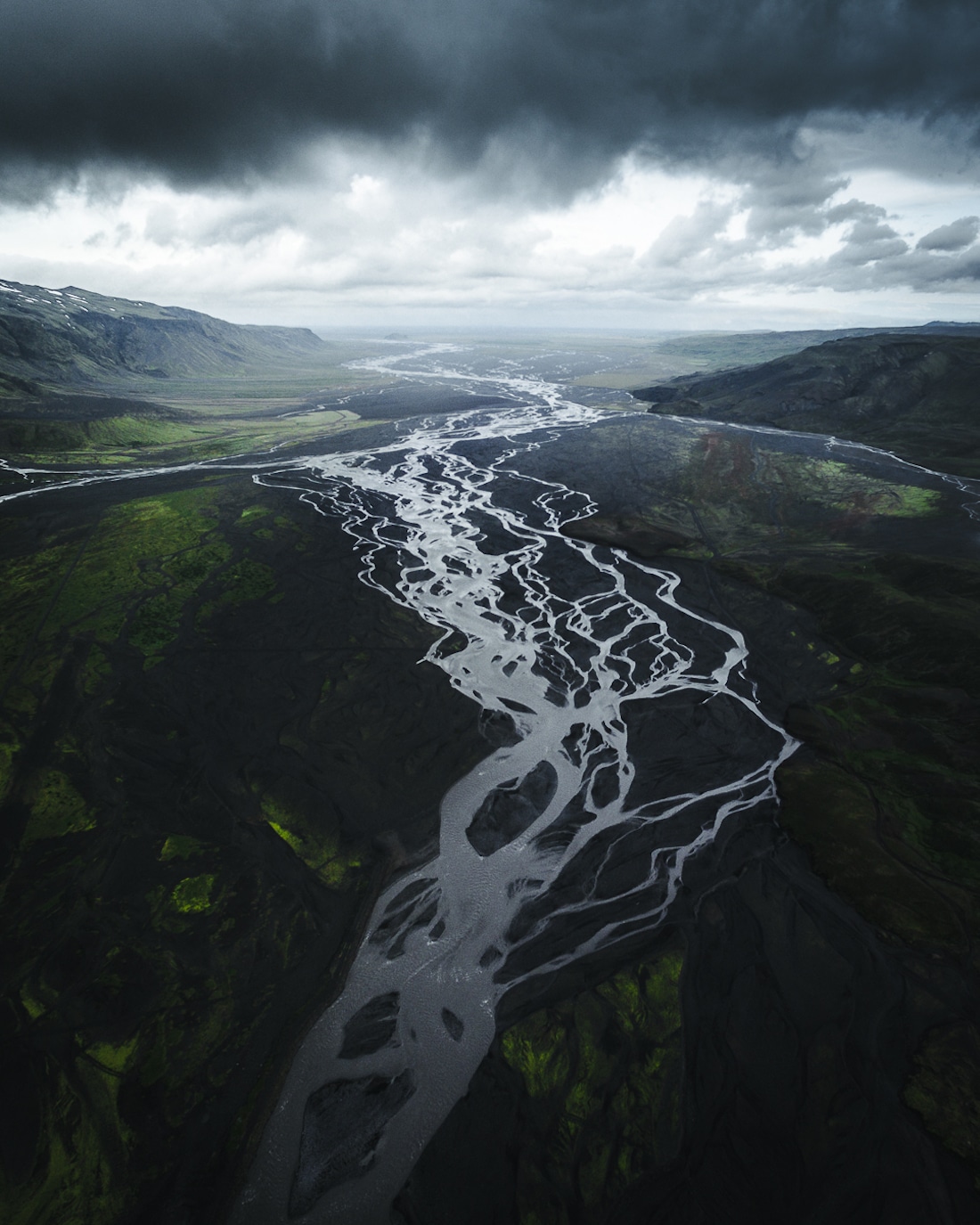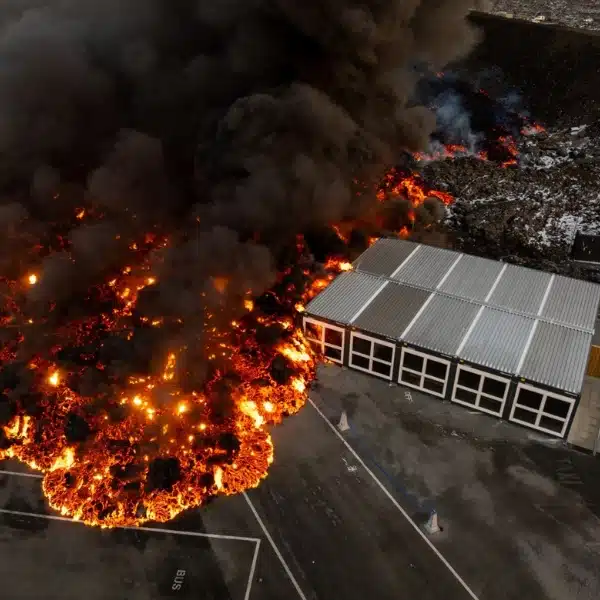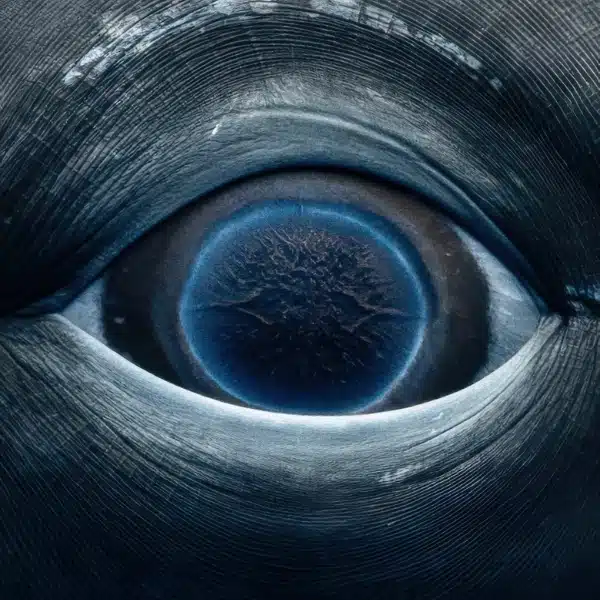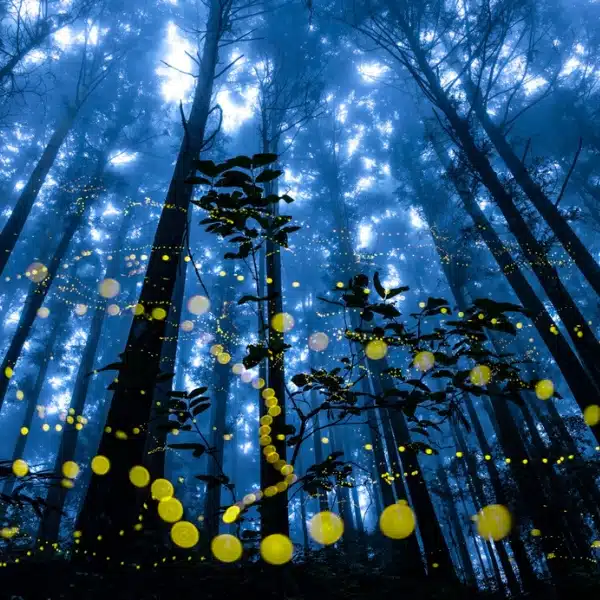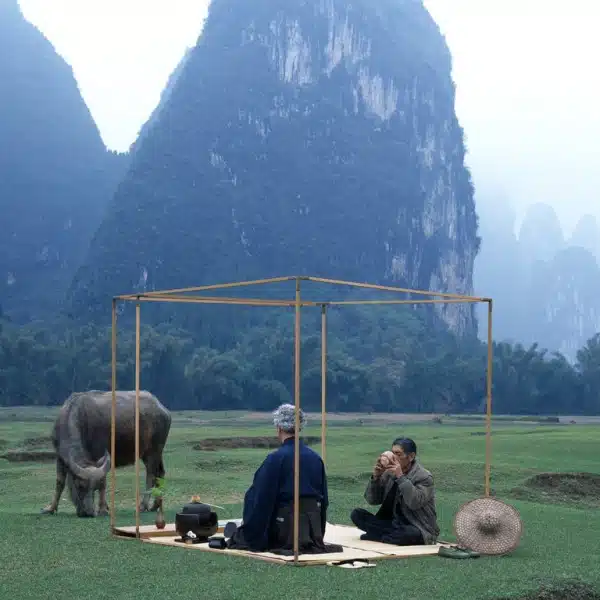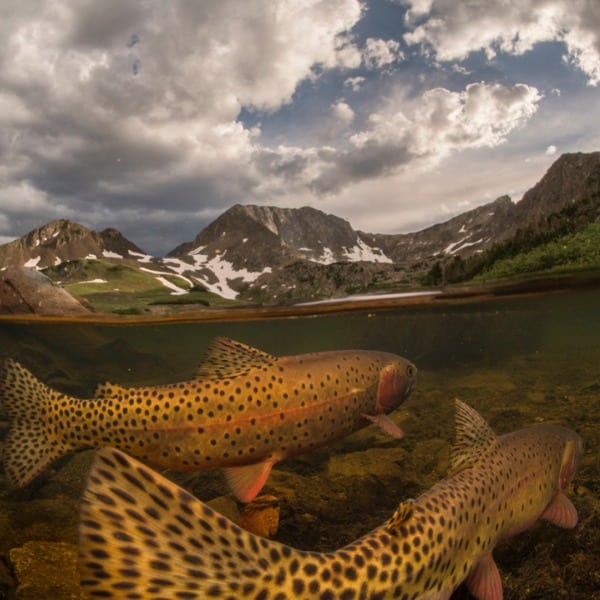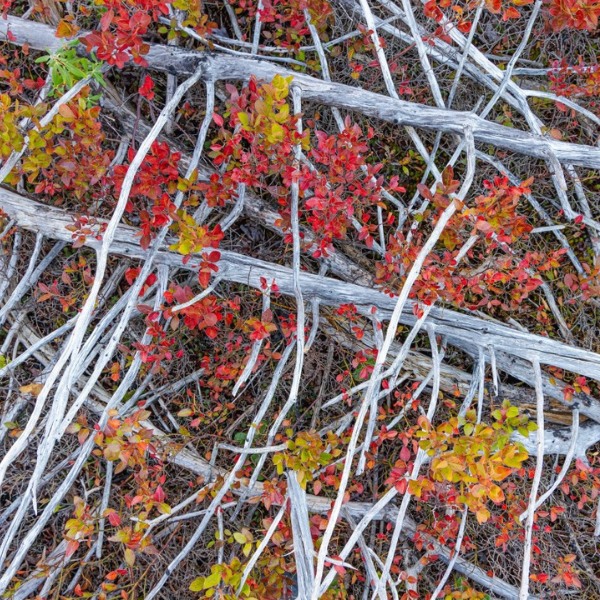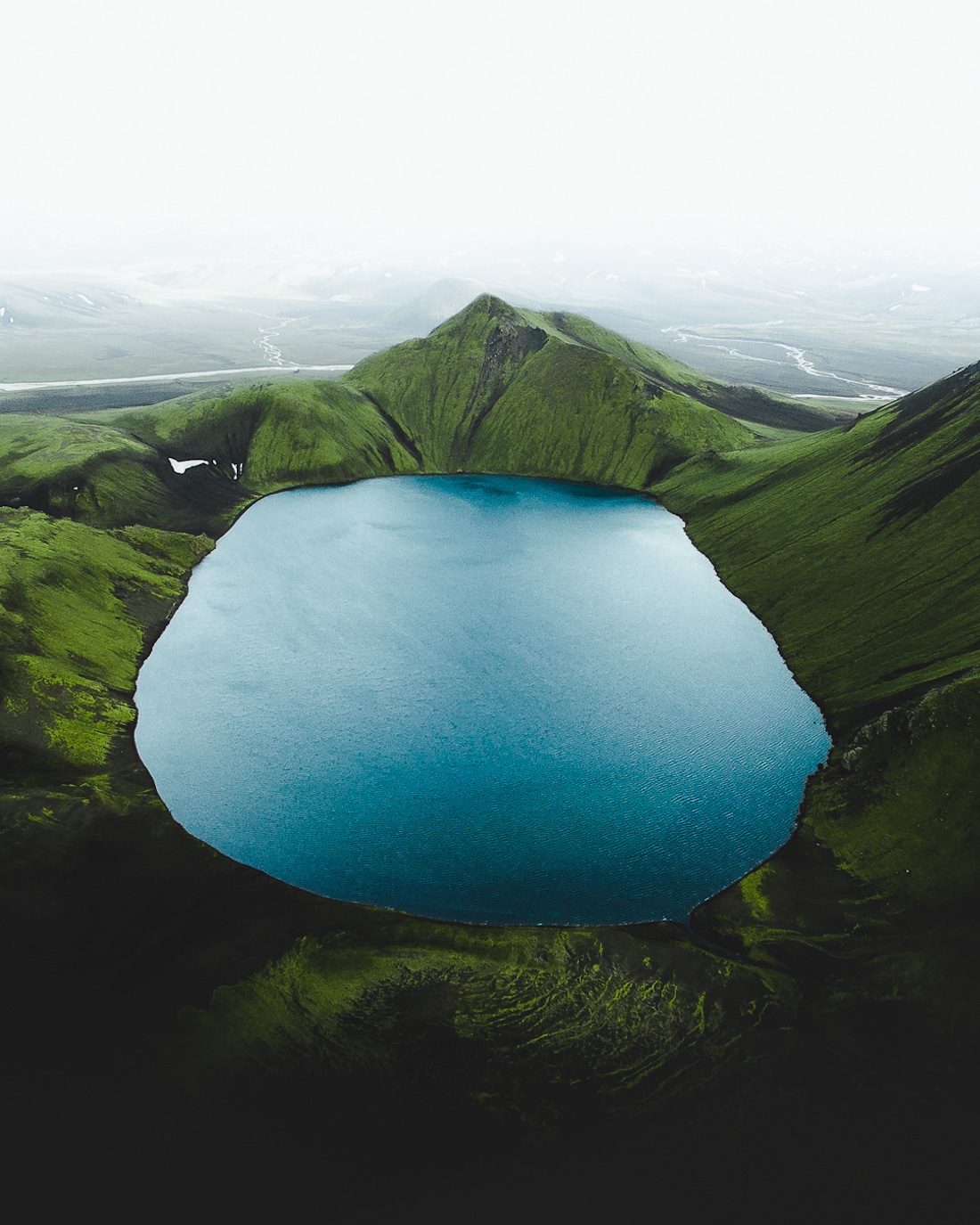
This post may contain affiliate links. If you make a purchase, My Modern Met may earn an affiliate commission. Please read our disclosure for more info.
Budapest-based photographer Gábor Nagy has cultivated a special connection to nature. Though he currently calls Hungary's most bustling city home, Nagy never misses the opportunity for an outdoor excursion. In addition to stunning Central European sites like the Dolomites and the Alps, his travels have taken him to the arctic, where he has captured striking photos of Iceland from above.
Shot from a drone, these aerial photos capture the country's captivating terrain and, above all else, its inherently emotive landscape. By opting to shoot in the autumn and the winter, Nagy is able to expertly accentuate the moody atmosphere of the mountains. This strategic approach has culminated in the muted color palette and minimalistic aesthetic that has come to characterize his striking portfolio.
While Nagy has been attracted to these “somehow sacred places” for years, he has since developed a newfound appreciation for the mountains—and, consequently, for the role his practice plays in the lives of others. “Now as a photographer I’m constantly going back to the same places searching for new hidden gems in specific areas, because there are so many things to see and so many stories to tell,” he reveals to My Modern Met. “My mission is to inspire people to appreciate and protect nature by capturing the inner beauty of these magnificent places.”
We had the chance to speak to Nagy about his inspiration, the challenges he’s faced on his photography trips, and what he has coming up. Read on for our exclusive interview.
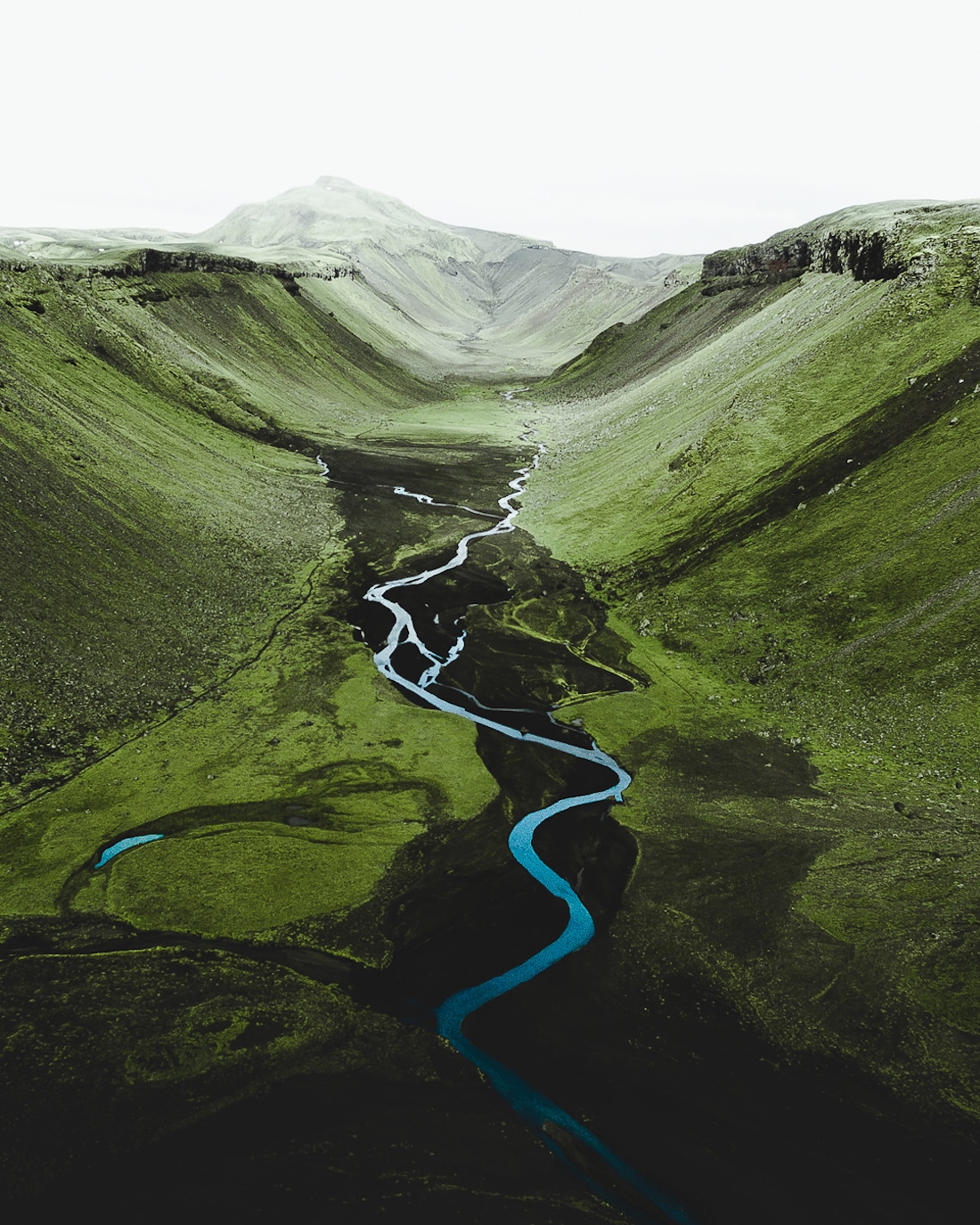
You’ve loved exploring nature from an early age. Has adding photography to the mix changed your approach to hiking?
Since an early age, I always tried to spend as much time outside as I could. I just loved being in nature when I was a kid, especially when we traveled abroad with my family into the mountains. Everything has multiplied by bringing a camera with me to the hikes. When I’m in the mountains, my daily routine looks something like this: I get up around 4 o’clock and start a 3-hour hike up to a peak or a ridge to catch the first lights of the day. I spend 2-3 hours up there to take photos from all the possible angles and compositions, then I hike back down to the hotel where I pick up my wife and we go out together somewhere for a full-day hike. Usually we choose a destination for sunset, spend another hour there, then go back to the hotel for dinner and editing the photos for the clients. Sleeping is a luxury when I’m in the mountains.
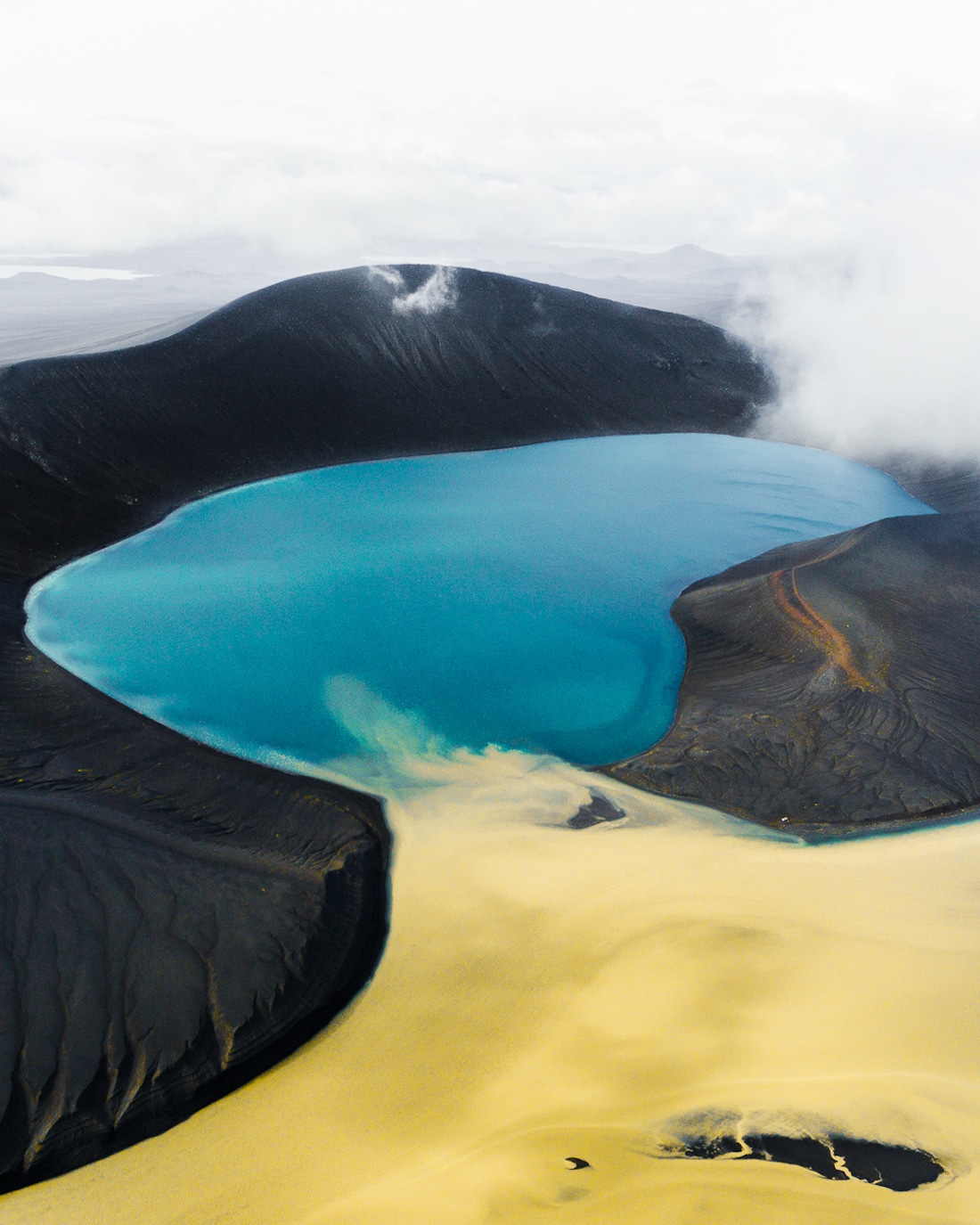
You’ve mentioned that you’re interested in documenting seasonal changes to the landscape and that you prefer shooting these sites in autumn and winter. What specific shifts do you aim to capture?
In September, as the season progresses and the temperatures are getting lower and lower, I feel like my time has finally come. I love to document how the weather and the seasons affect the landscape. In autumn, I capture the diversity of the colors; then in winter I capture the lack of the colors. It’s a game that requires perfect timing, preparation, and dedication, because everything happens so quickly that I can easily miss the perfect colors or conditions if my calculations went wrong. From a psychological standpoint, in winter, my relationship with nature is more intimate, because as the cold pierces into my body, I can feel my presence in nature much better.
Is that how you achieve your signature desaturated aesthetic?
Yes, the main reason behind the desaturated look is that I ignore shooting when the sun is out or when direct light hits my subject. I usually work during blue hour, so the colors of the mountains are more desaturated. And of course I use Adobe Lightroom to finalize the pictures.
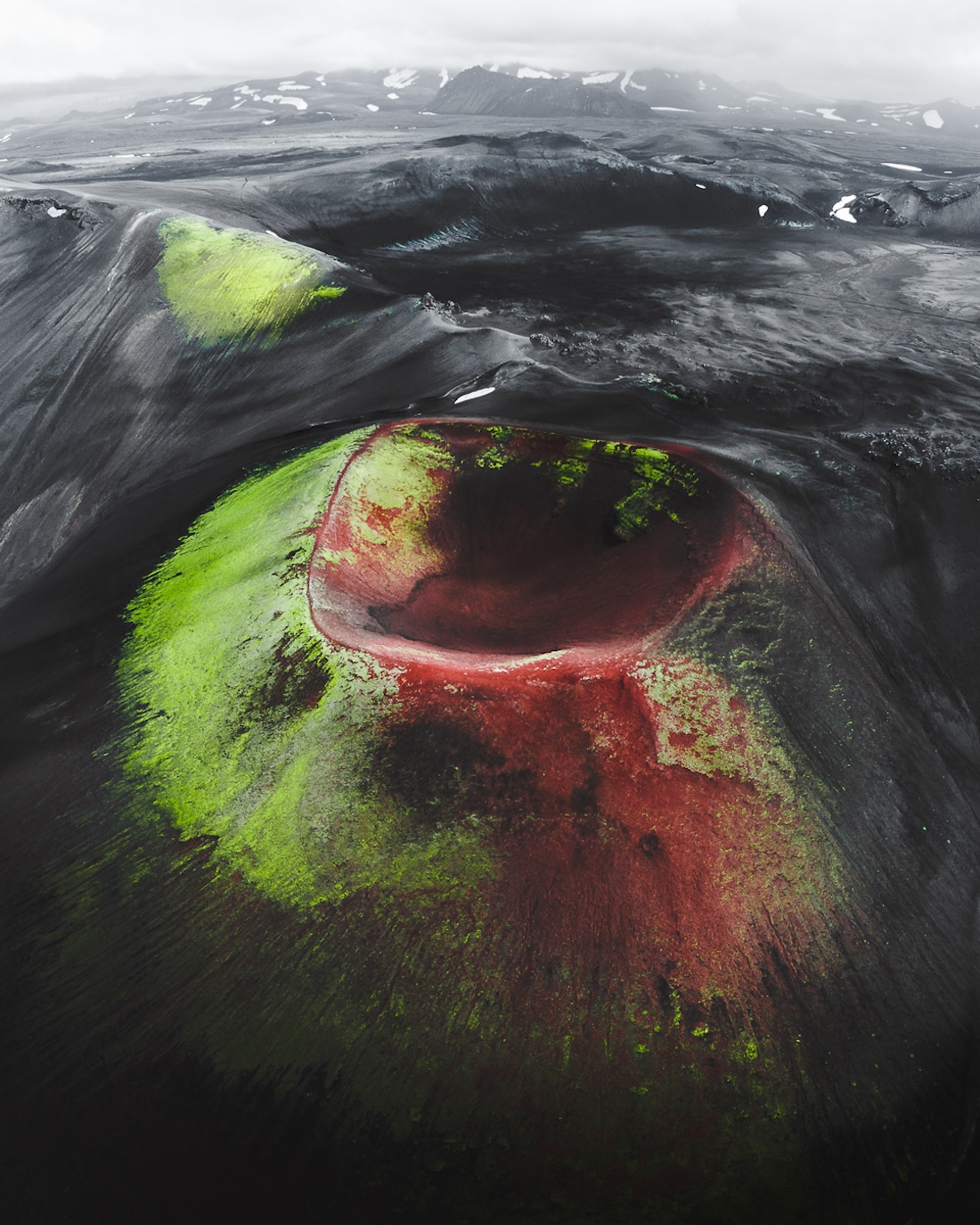
How do you overcome adverse weather conditions during these cold months?
I have to be prepared for every scenario, so basically I bring clothes for three different kinds of weather. Choosing the right gear is essential, but it’s important to be strong physically and mentally at the same time. And of course I have to make the right decisions when my life is on the line.
Actually, I’m a Sony Global Imaging Ambassador, and a few weeks ago we launched a short documentary film about my working method and how I work in tough winter environments.
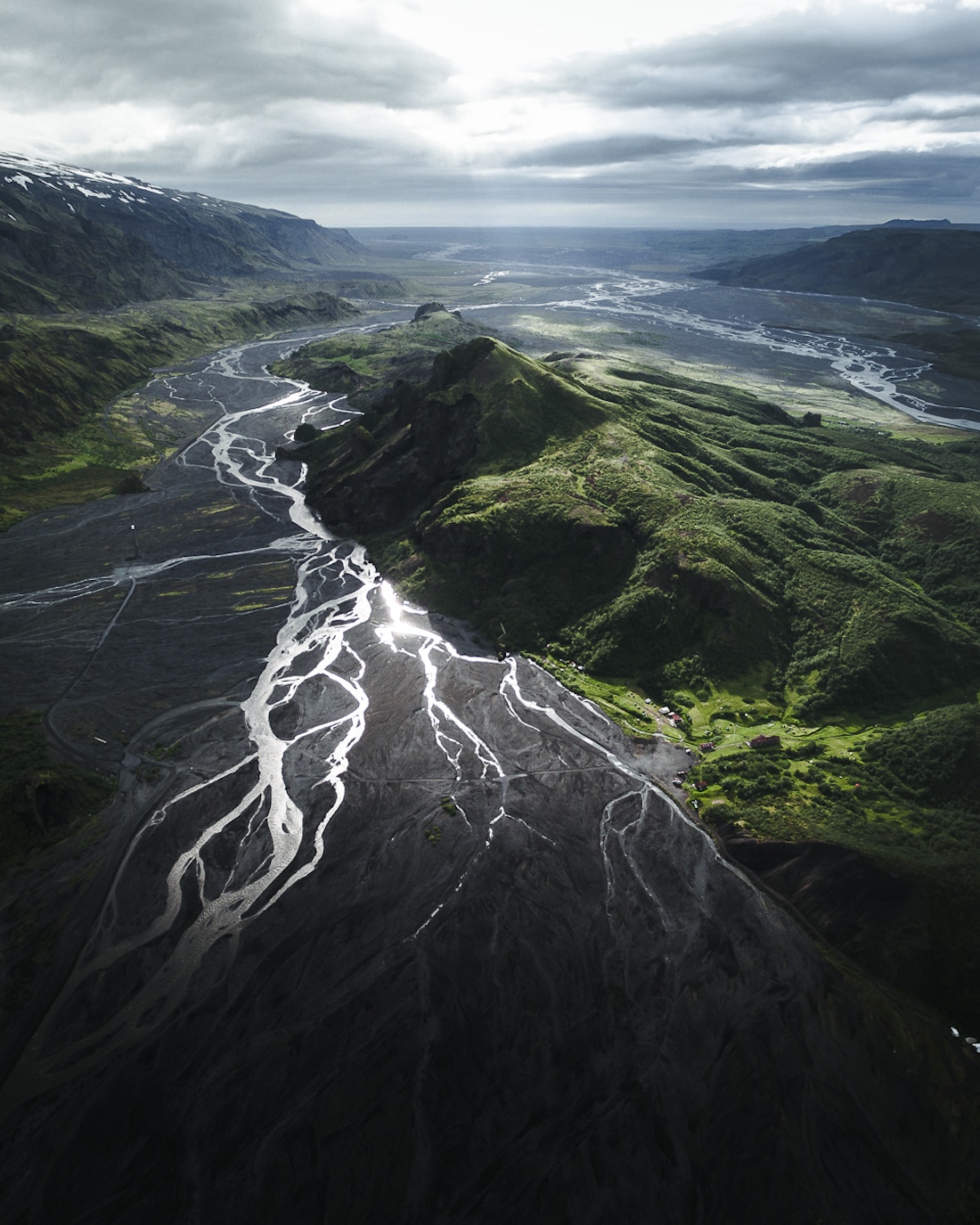
What photography gear do you use?
Because I hike and climb a lot, size and weight are super important for me, so I chose the Sony Alpha mirrorless system. As I’m a Sony Global Imaging Ambassador, my main camera is the Sony a7riii, and my favorite lens is the Sony 100-400 GM. For drone photography and videography I use a DJI Mavic 2 Pro.
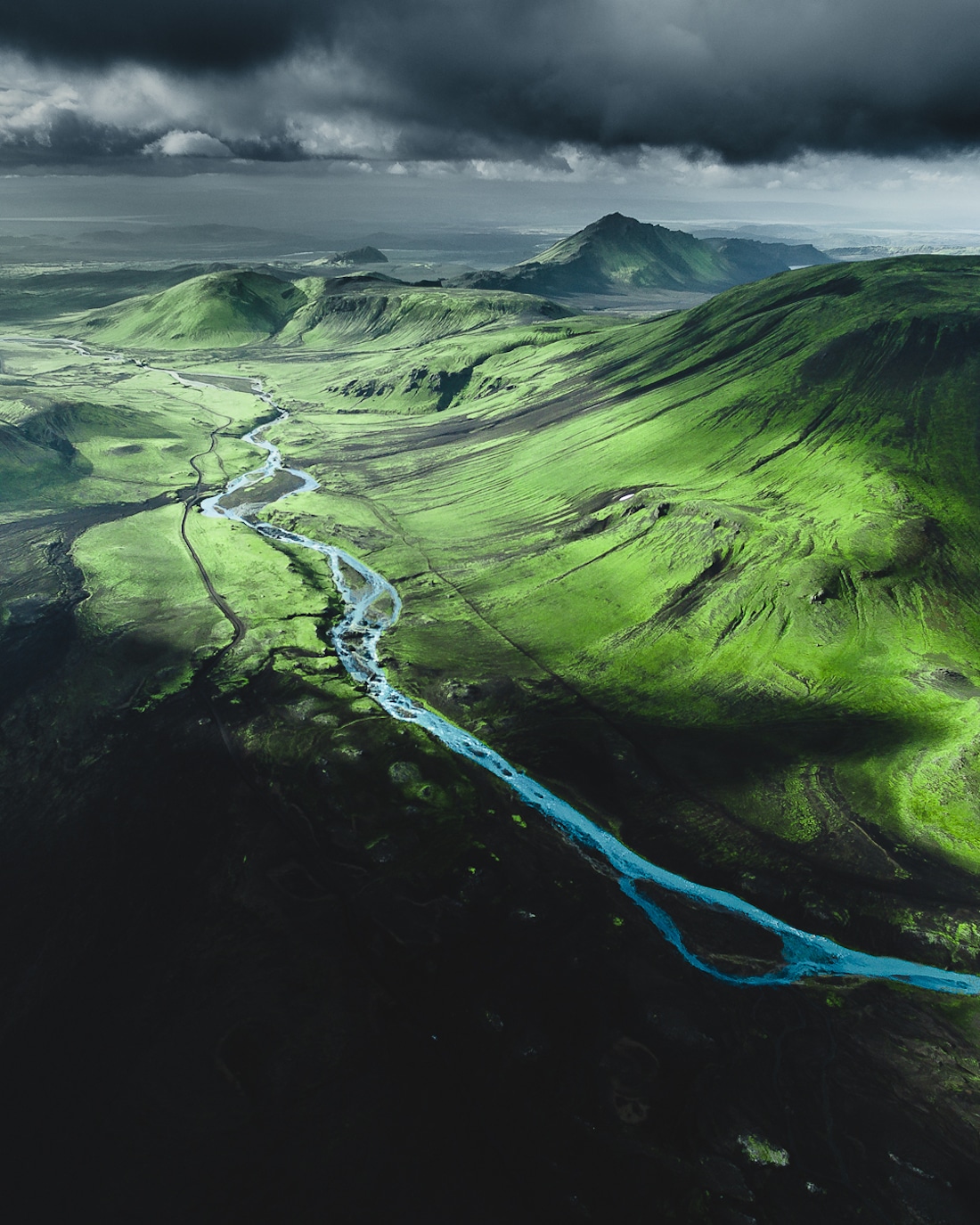
You note that your minimalistic approach to photography is inspired by music. Can you tell us a bit more about your musical background, and how it has influenced your practice?
I studied classical music in high school—actually, I wrote music a lot, too. From the very beginning, I tended to gravitate toward composers who could create a full sound spectrum with only a few instruments. I was a big fan of Stravinsky, then I discovered Bartók and Ligeti, and when I was 16, I found a book in the school's library about the 60s, 70s American minimalists like Terry Riley, Steve Reich, and Philip Glass. The repetitive music was an eye-opener for me, and I dived deep into the structures and harmonics of these compositions. It was so interesting to find out lately that unintentionally I do something similar with my camera now as I did with my piano 15 years ago.
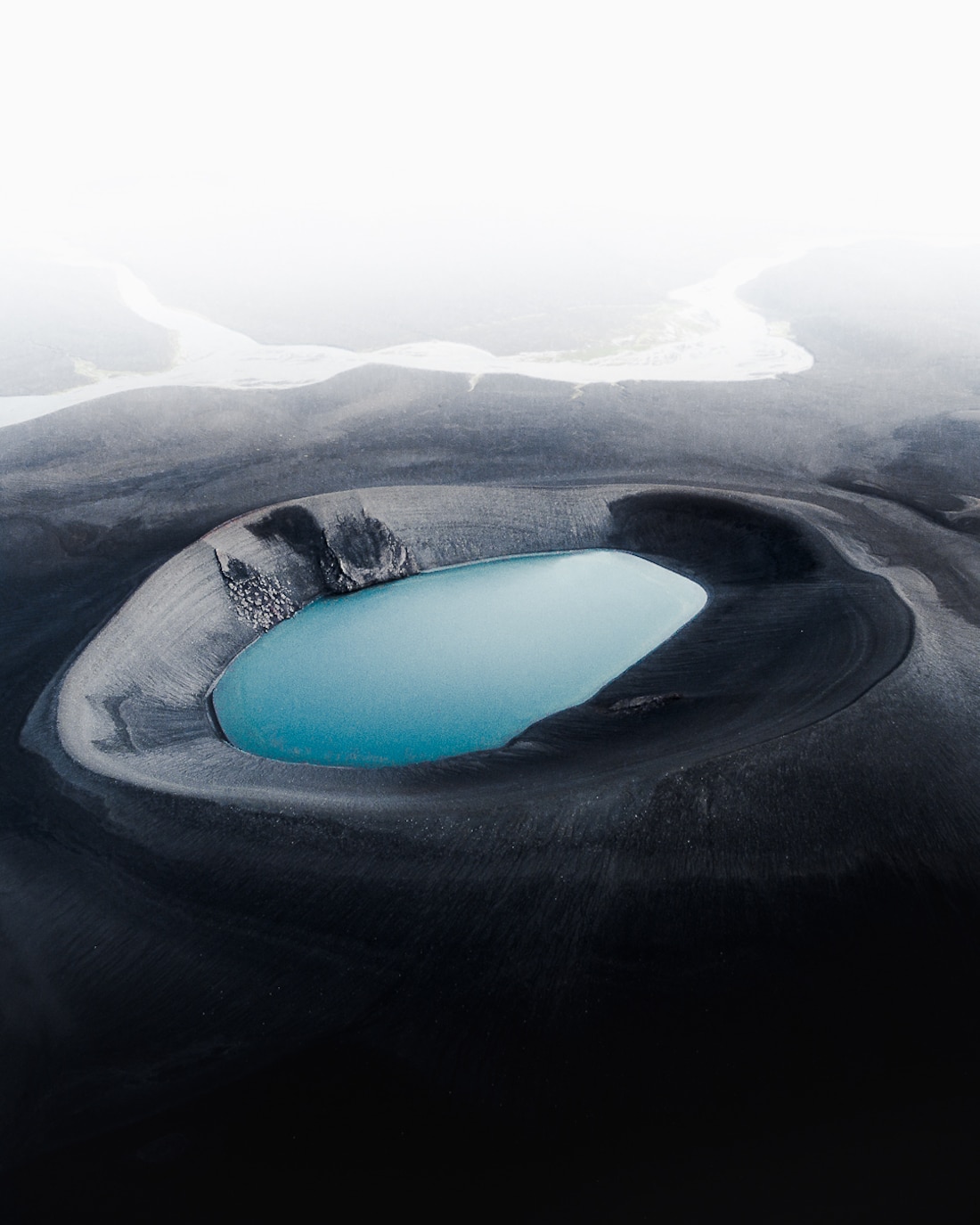
Do you have any new projects or plans in the works?
I’m going back to Iceland 2 times this year: in a few weeks I’m there to capture the midnight sun over the peaks of the Westfjords and I will return in September to catch the aforementioned autumn colors of the Highlands. In my spare time I’m working on releasing my latest client works and a new series on my website.
See more stunning drone photos of Iceland by Gábor Nagy.
